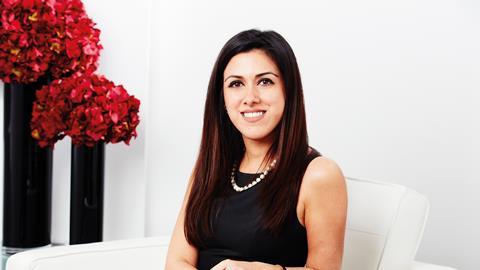General counsel and chief operating officer, London
As a child of the 1980s I had always been taken with the idea of a career in commerce. In hindsight, it was probably the concept of wearing power suits and big shoulder pads that attracted me, rather than having any real grasp of what the day-to-day job actually entailed.
I studied for my LLB at UCL and the curriculum focused on ‘black letter law’. I did not enjoy the more theoretical side of law – I still shudder at the thought of having to read endless essays based on Locke’s concept of property rights. It was the influence of friends who were studying economics and finance, and pursuing careers in M&A and banking, that inspired me to want to go into corporate law.
I graduated from UCL in the aftermath of the dotcom crash. Law firms were deferring training contracts, or putting a freeze on hiring. I decided not to apply for training contracts until I had completed a master’s in corporate and commercial law. Unlike the LLB, the LLM was taught by legal practitioners who gave me an insight into the role of a corporate lawyer. Who would have thought I would have found syndicated loan documentation so enthralling?
I secured a training contract at KLegal, (then the legal arm of KPMG and later bought out by McGrigors); a perfect fit for me given my aspirations to work in the finance industry. Ahead of my training contract I was a paralegal for Freshfields’ corporate M&A team for six months before travelling around south-east Asia. This helped me to hit the ground running for my first seat in the corporate department at McGrigors. There was never any doubt in my mind that I wanted to qualify into the corporate department and that is what I did. I was extremely lucky to work with an amazing team at McGrigors and I have very fond memories of my time there.
'I did not enjoy the theoretical side of law – I still shudder at the thought of having to read endless essays based on Locke’s concept of property rights'
Secondments are an excellent way for firms to cement their relationships with key clients. Clients get unlimited access to legal advisers at a cost-effective rate, and the secondees gain an invaluable understanding of the inner workings of the client. I was lucky enough to be seconded to O2 for about six months on a part-time basis to assist the in-house team. I was working on commercial contracts and assisting with the range of issues the in-house team needed help with. It was a gentle introduction into the world of in-house law, as I could always refer back to the relevant specialist at McGrigors if I needed clarification or advice on an issue I had not come across, so I still felt supported. Before I took on a permanent role at Signia I was seconded here as well.
Being on secondment was invaluable because it changed the way I responded to client queries. I remember the partner in the commercial team who placed me at O2 repeatedly emphasising that all correspondence to the client ‘must answer the question’. It seems obvious, but often as lawyers we are a product of our training. Legal degrees and training are academically challenging, and sitting on the other side as a client I can now see that the biggest mistake lawyers make (often senior partners), is to give the client a beautifully crafted legal essay as a response to a question. Clients want a short, easily comprehensible and practical answer.
Shortly after my secondment ended and I returned to McGrigors full-time, I was placed on another secondment at Signia for an initial period of three months. This turned into an eight-month secondment before the CEO offered me a permanent role as GC.
The work at Signia is so varied and no day is the same. I still draw on my transactional experience when evaluating deals that we offer to clients, but I can also be asked to opine on anything from financial regulatory issues to divorce proceedings, or assist with multi-million-pound shareholder disputes.
Being an in-house lawyer means you have oversight of nearly every part of the business in some shape or form. There are clear synergies that have evolved over time between my GC role and the role of chief operating officer, so it seemed a natural step to take. My main role as COO is to evaluate and oversee new service lines. I chair the ‘ops comm’ which is made up of members of the risk, compliance, finance and HR team. We work together to ensure that the business is operating efficiently. I also work closely with the management team on business strategy and managing the implementation of any new projects.
































No comments yet